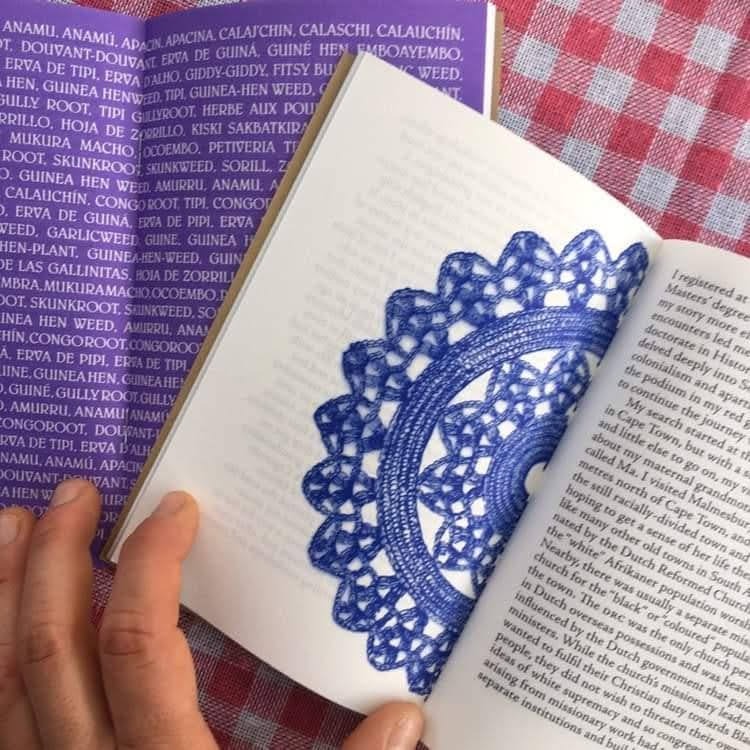A gathering was recently held in Cape Town to read my essay, Unpick, Restitch: Doilies, Medorahs and Labouring Plants. The essay is the first in the Fieldguides for a Preternaturalist series of chapbooks, within the project, Nothing of Importance Occurred: Recuperating a Herball for a 17th Century Enslaved Angolan Midwife at the Cape. The project was inititated by South African artist, Wendy Morris, whose enslaved ancestor, Maaij Claesje of Angola, was a midwife in the Company slave lodge in Cape Town.
My writing is about trying to piece together a narrative of who I am, where I come from, and where I belong. In order to recuperate these erased narratives, I have drawn from an ordinary archive – oral history, family photos and objects like my grandmother’s scarves and the doilies she crocheted. The objects that our grandparents found important to make, keep and pass down to us, give us a sense of belonging. The things that they touched and used, hold a history that fills in the blanks in the official archives and challenge the dominant narratives that would have us believe that we were less-than.
During my research, I came across the Flower of Maryam, the labouring plant of the essay title. The plant, which was usually brought back by pilgrims from Mecca in its dried state, had been used as a visual tool during labour and was passed down from one generation of women to the next. At the start of our programme I immersed the plant in a bowl of water to help us keep track of time.
After Wendy gave an overview of the larger project, story-teller and poet, Philippa Kabali Kagwa, led us into the reading with an invocation. It was a privilege to hear my essay read in a multitude of voices that cut across any divisions of colour, religion, gender or age, and a testimony to the power of story to connect us. By the time our gathering came to a close, the Flower of Maryam had opened, a powerful representation of rebirth, community memory and women’s agencies over their bodies.
The gathering was organised by Deep Histories, Fragile Memories, a research group at LUCA School of Arts, Brussels, and the Cape Town Museum.
